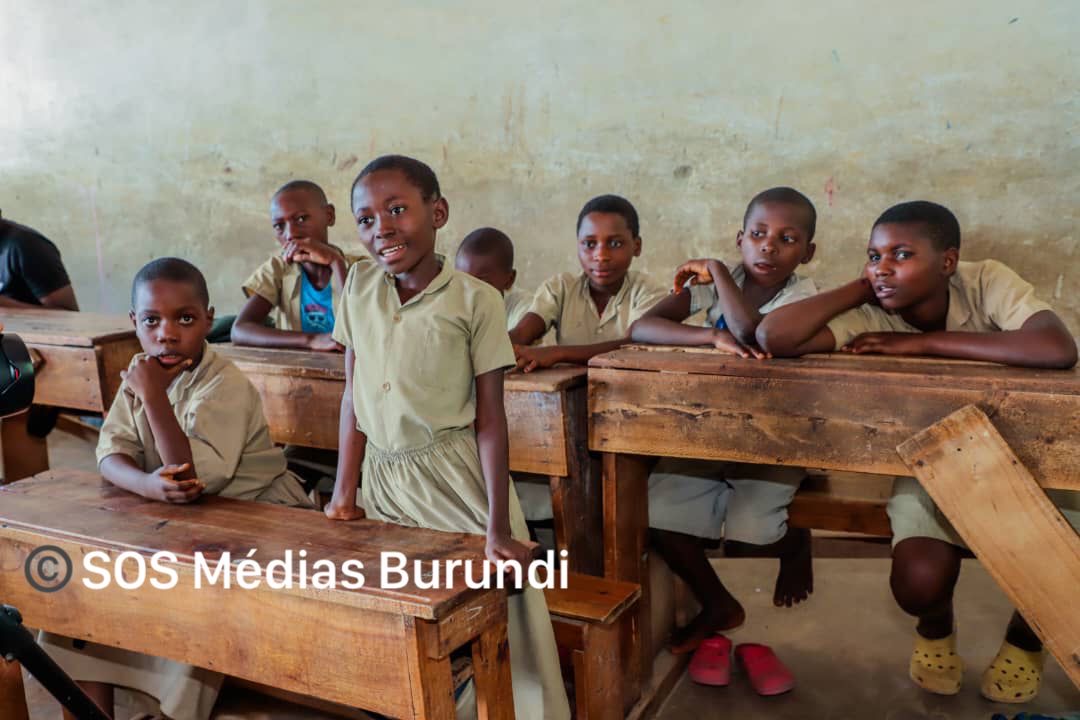Education in Burundi: Lawmakers Sound the Alarm Over Alarming Deterioration of the School System

SOS Médias Burundi
Bujumbura, June 23, 2025 – Once considered a model in Central and East Africa, Burundi’s education system is now in crisis. Concerned lawmakers, plummeting academic standards, and declining language skills: warning signs are multiplying. The government acknowledges the challenges but is slow to implement urgent reforms.
Burundi’s education system is undergoing a deep crisis. Once praised as one of the strongest in Central and East Africa, it is now widely criticized, including by members of parliament who have sounded the alarm and urged the government to act.
A Formerly Exemplary System in Peril
Successive reforms since the 1970s, often implemented without a clear vision or thorough evaluation, have gradually undermined the quality of education in Burundi. The current assessment is harsh: Burundian students, with few exceptions, can no longer compete with their peers in the region.
This sharp decline in academic standards jeopardizes the country’s competitiveness, particularly in terms of human resources. According to several observers, Burundi’s schools are no longer fulfilling their role as a vehicle for social mobility.
Alarming Decline in Language Skills
One of the most visible signs of this decline is the collapse of students’ language proficiency. Mastery of Kirundi, French, English – and Swahili at the primary level – has significantly deteriorated.
“Many students today struggle to form a correct sentence in French or to conjugate even the simplest verbs,” warns a secondary school teacher.
This linguistic weakness not only hampers the learning of other subjects but also limits the country’s ability to engage in regional and international exchanges.
Lawmakers Speak Out
Faced with what they describe as an alarming situation, several Burundian lawmakers have voiced their serious concerns in the National Assembly. They are urging the government to urgently implement the recommendations from the National Education Forum.
“Every day that passes without concrete measures worsens the crisis and jeopardizes the future of our youth,” declared one lawmaker during a recent plenary session.
Parents and Teachers in Distress
In Bujumbura’s working-class neighborhoods – the country’s economic capital – concerns are widely shared. Nadine, a mother of three children attending public schools, is disheartened:
“My children can no longer read a simple text in French. Yet, they are promoted to the next grade every year. It’s as if diplomas no longer hold any value.”
The same frustration is echoed by teachers. According to STEB (the Burundian Teachers’ Union), the decline is also linked to the lack of ongoing training, overcrowded classrooms, and the demotivation of teaching staff.
“As long as teachers are poorly paid and see no prospects, we cannot expect quality performance from them,” laments a union representative.
Government Acknowledges the Challenges but Calls for Patience
Asked about the issue, the Minister of Education and Scientific Research, Professor François Havyarimana, acknowledged the seriousness of the challenges.
“We are aware of the need for a deep reform of the curricula, but this requires substantial investments,” he said, adding that the government is awaiting the conclusions of the Council of Ministers before any measures can be implemented.

